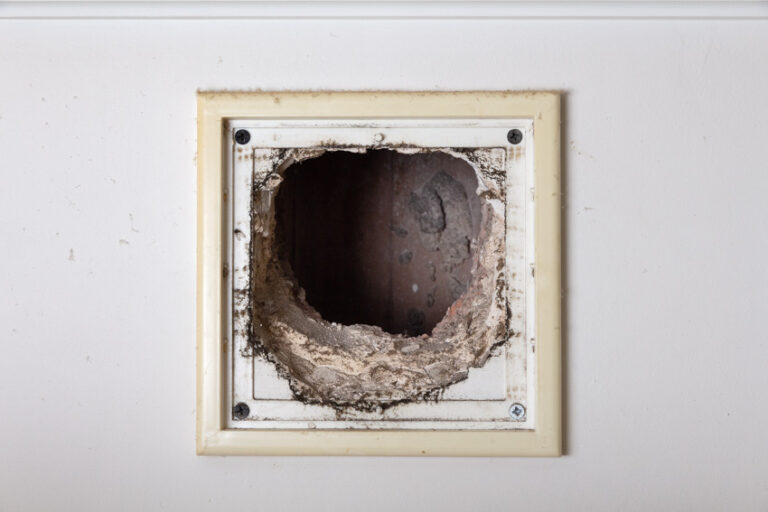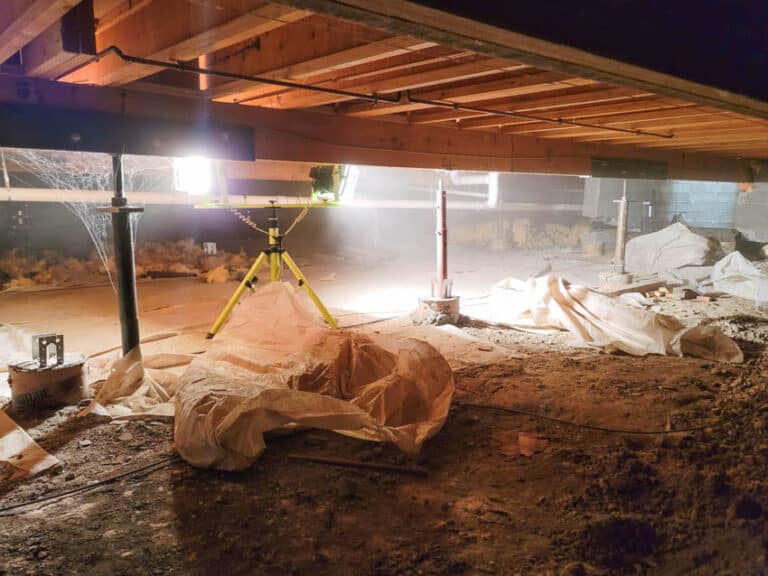Crushed Limestone Driveway Pros and Cons
Here’s our guide to crushed limestone driveway pros and cons with its cost, size recommendations, and safety for you to decide if it’s the best material for your home.
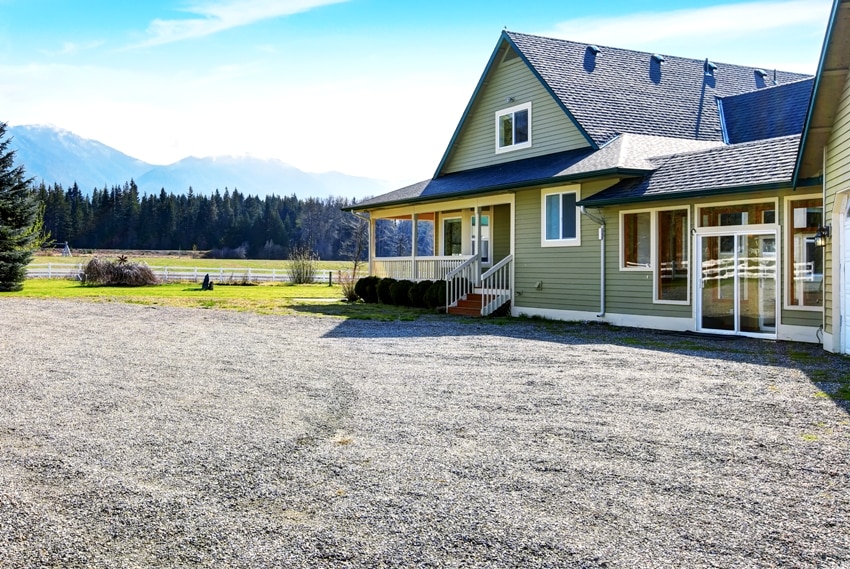
Crushed limestone is an excellent driveway material for families who want to improve their property’s value without breaking the bank or tedious installation work. Limestone’s grayish-white color with dark specks can enhance any landscape while supporting a vehicle’s weight as it drives to the front door or carport.
While crushed gravel like this can improve a house’s aesthetics, there are also drawbacks that homeowners must understand. Learning the different pros and cons will empower homeowners to decide if this material is best for them or not.

Upload a photo and get instant before-and-after room designs.
No design experience needed — join 2.39 million+ happy users.
👉 Try the AI design tool now
What Is Limestone Gravel?
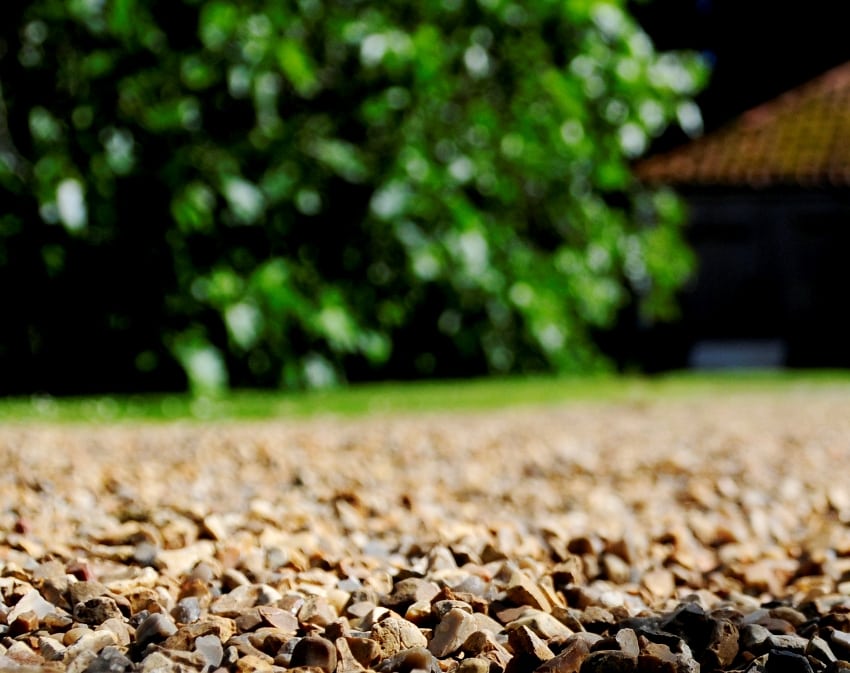
A sedimentary rock, limestone mainly contains calcite or aragonite, which are forms of calcium carbonate. It can also contain sufficient amounts of dolomite or magnesium carbonate and trace amounts of iron carbonate, quartz, feldspar, clay, magnesium, phosphorus, zinc, copper, and pyrite.
Farmers and growers add pulverized limestone in their plots and gardens to improve soil nutrition and promote more robust plant growth. When crushed into tinier bits, the material can also reduce soil acidity.
Larger chunks are perfect for driveways because of their exceptional hardness and density. See the types of gravel here.
It forms the ballast or bed for railway tracks because of its strength under pressure. One can also see these aggregates in tarmacked and concrete roads as base material.
Advantages of Limestone Aggregate Driveways
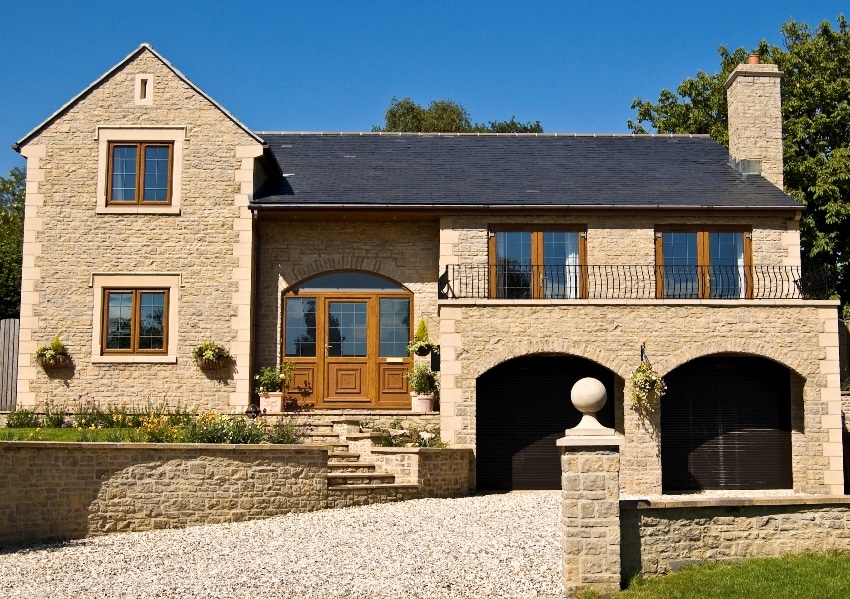
Excellent Drainage: Homeowners will never worry about flooding on their driveways because loose limestone gravel has spaces between individual rocks that facilitate more efficient water drainage. The water seeps naturally into the ground.
Easy Installation: Constructing a crushed gravel driveway is as easy as dumping the rocks into a pre-defined space, distributing them evenly, and compressing them to produce a dense and sturdy surface. On the other hand, asphalt or concrete driveways require more work.
Durable: It is a dense and hard sedimentary rock made of carbonates and other minerals. While it is not as compact as concrete or asphalt, these gravel driveways can last several generations. That is why it is the favorite material of the building and construction industry.
Attractive: No two stone gravel designs are exactly alike, creating a beautiful pattern on the driveway. It has a honey-colored and light cream hue that can complement the natural greens of the garden or lawn bordering the driveway. Some varieties have a darker hue for a more dramatic effect.
Affordable and Accessible: One can buy loose materials from almost any sand and gravel company or construction supplies store. It is also more affordable than asphalt or concrete. See crushed asphalt driveway guide here.
Disadvantages of Loose Limestone Driveways
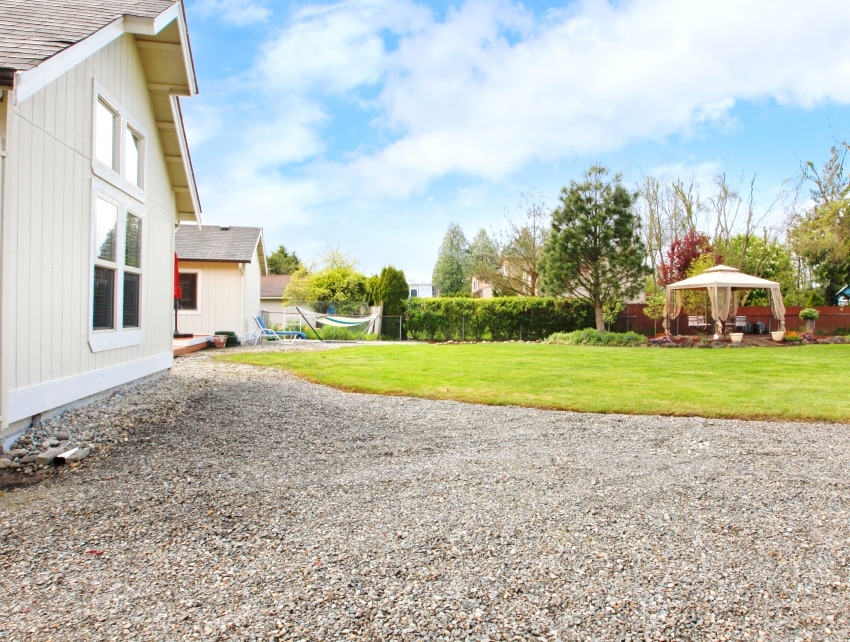
Seasonal Challenges: It can be difficult to plow snow from a crushed limestone driveway. The snowplow can dig into the gravel bed and alter its composition. Raking leaves in the autumn can also be more challenging because of the gaps in the gravelsurfaces.
Frequent Maintenance: This driveway material requires regular weekly maintenance, removing leaves, twigs, and other debris. It is not the best option for households that need a maintenance-free or low-maintenance driveway.
Is Limestone Good For Driveways?
Crushed limestone is not only an affordable driveway option. It can also be a sturdy platform for vehicles to drive from the gate to the front door or carport.
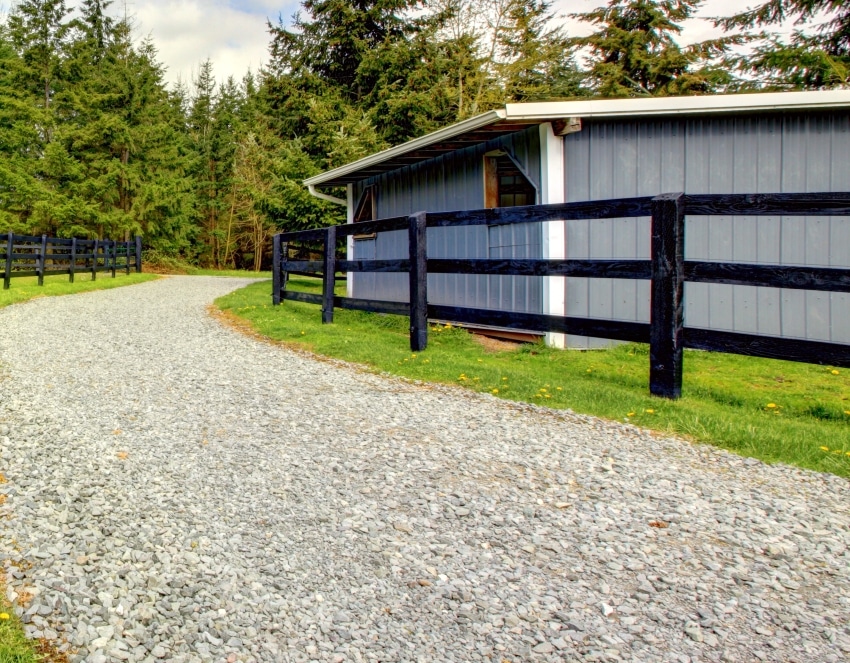
It has jagged edges that lock in place when compacted or pressed together. The interlocks prevent the movement of individual pieces, ensuring a more stable and sturdier driveway.
What Size Limestone For the Driveway?
Depending on the homeowner’s preferences, crushed limestone can form a loose-top driveway or an aggregate of a concrete or asphalt mix. Regardless, either method requires the correct size of rocks.
Loose-top Driveway
Start with a foundation made of No. 2 or No, 2.5 limestone, followed by a filler layer of ½-inch-grade No. 57 crushed limestone. The top layer is a ¼-inch-grade No. 8 limestone.
One can also use a ¾-inch size for the top surface. However, it is essential to understand that the tinier the gravel particles, the more maintenance the driveway will require.
Asphalt or Concrete Driveway
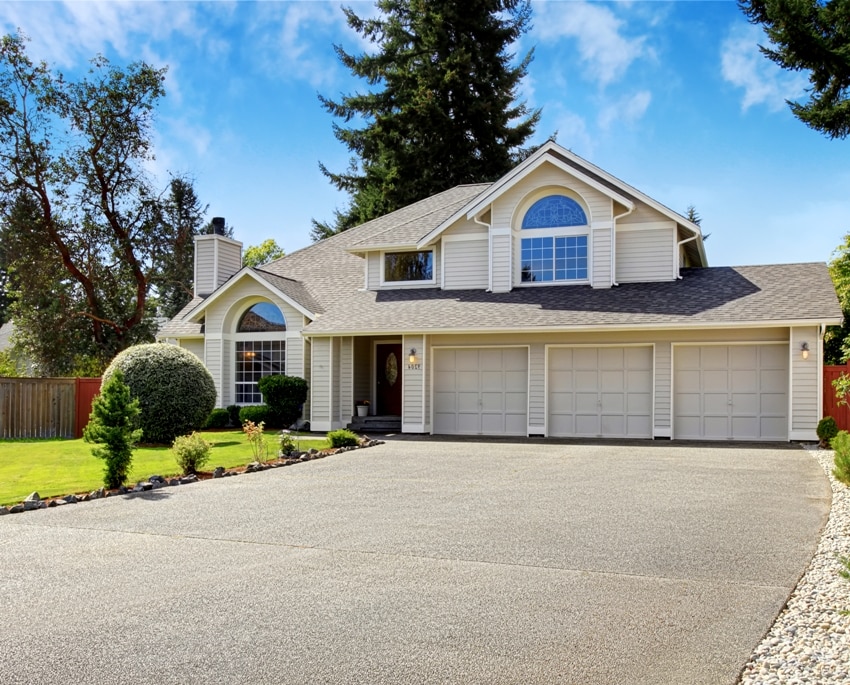
Families who want to use this material as concrete or asphalt aggregate can use a 3/8 to ½-inch-grade No. 8 gravel product. Read more about asphalt vs gravel driveway here.
Limestone Driveway Cost
This type of driveway can cost $115 per cubic yard or $143 per ton if bought in small quantities. Large-volume orders can lower the price to $65 per ton or $30 per cubic yard.
One must also recognize the style and size differences of stones. The more upscale the materials, the higher the price per square foot. For example, it is not unusual to pay $2 to $3 for every square foot of premium-quality limestone.
Installing a crushed limestone driveway can set homeowners back by about $1.25 to $2 per square foot of driveway space. A 16×48 foot aggregate gravel driveway can cost between $960 and $1,536.
A smaller driveway may only require a budget of $300 to $350, while a longer and larger driveway may require up to $60,000 in budget.
Does Limestone Harden When Wet?
Limestone is one of the densest and hardest rocks people use in construction. However, water tends to dissolve the calcium carbonates, softening it when it rains or when exposed to water for a long time. The good news is that its gravels are resilient, allowing them to harden once completely dry.
Is the Limestone Used On Driveways Safe?
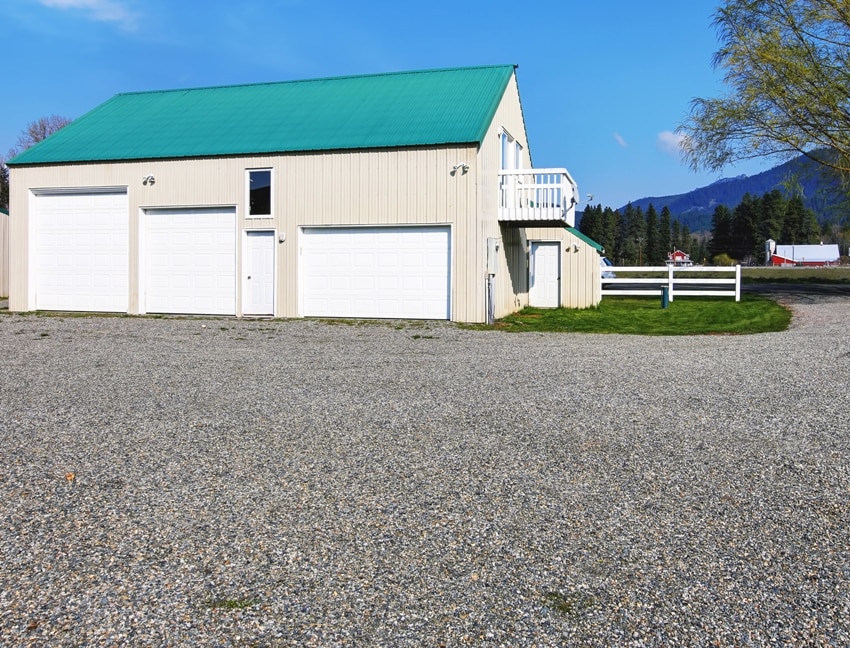
Medical experts say this material is not a health hazard per the University of Illinois Urbana-Champaign. However, mechanical or natural forces can produce dust particles that people can inhale or irritate the skin and mucus membranes.
These dust particles can contain silica crystals that can embed in the respiratory tree and cause breathing problems.
With the correct size, this gravel is also safe on vehicle tires. While some rocks may have pointed edges, these are not sufficiently sharp to puncture the tires.
Crushed limestones are a standard and good material for reinforced concrete. – Concrete-Cement Volume 5, 1914
However, there is the risk of turning loose stones into projectiles. These small rocks can hit the vehicle’s under-chassis. That is why many contractors put a limestone screen on loose-top driveways.
If you’re looking to hire a business to install a loose stone drive, there are several precautions to take. First, you’ll want to take measurements to adequately determine the size of the area you will want covered.
Then, you must decide on the thickness of the stone layer you require. This will typically be about 12″ deep in total.
After that, you should consider landscape supply companies, rock quarries, and suppliers in your area. The closer they are to your location, the less it costs to transport the materials needed.
Check reviews to learn more information about the company and how it handles customers. Call three companies and request multiple quotes based on the amount of materials you need. Getting several estimates can help you find the best price.
However, ask the following questions to avoid any potential issues or surprises.
- Is the gravel local? (imported stone may have a higher cost.)
- What is the grade? (there are different sizes of stone based on the application.)
- Are there delivery costs? (Make sure the company includes the cost of materials and delivery in the quote.)
- Are additional materials needed? (Ask questions about using a base layer and what is recommended for your soil).
Conclusion
This type of crushed rock is an excellent choice for families who want an affordable and elegant driveway. It is hassle-free to install, although it requires more frequent maintenance. Loose gravel is also more efficient in handling water runoffs, preventing floods in the driveway.
Deciding to use crushed limestone on the driveway is easier after learning the different pros and cons. Did we answer all of your questions, or do you have information of your own to share? Send your comments below for others to read.
For more related ideas visit our guide to concrete driveway finishes here.


